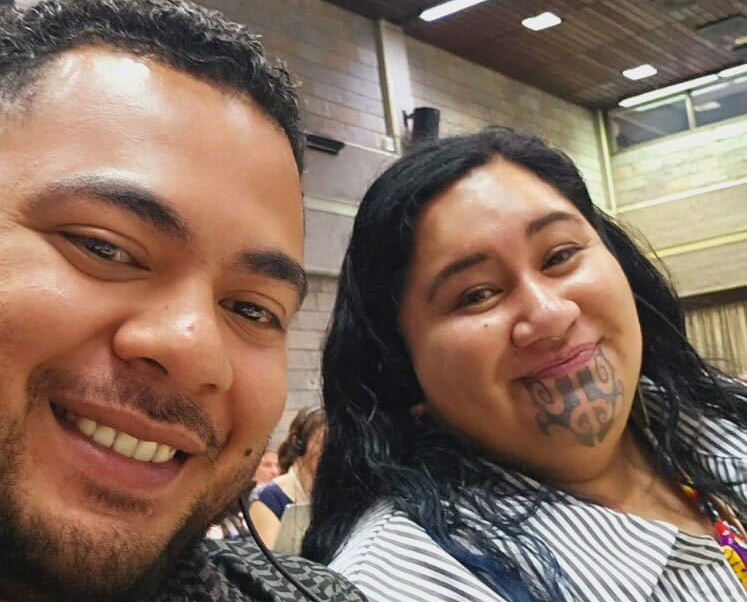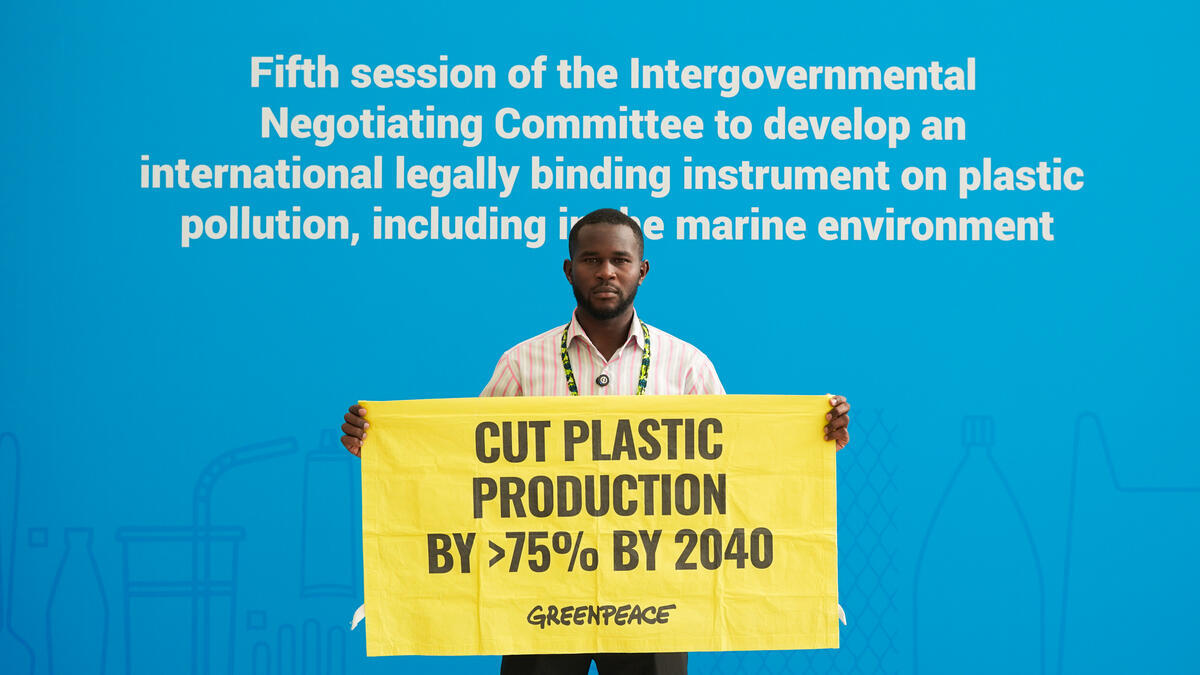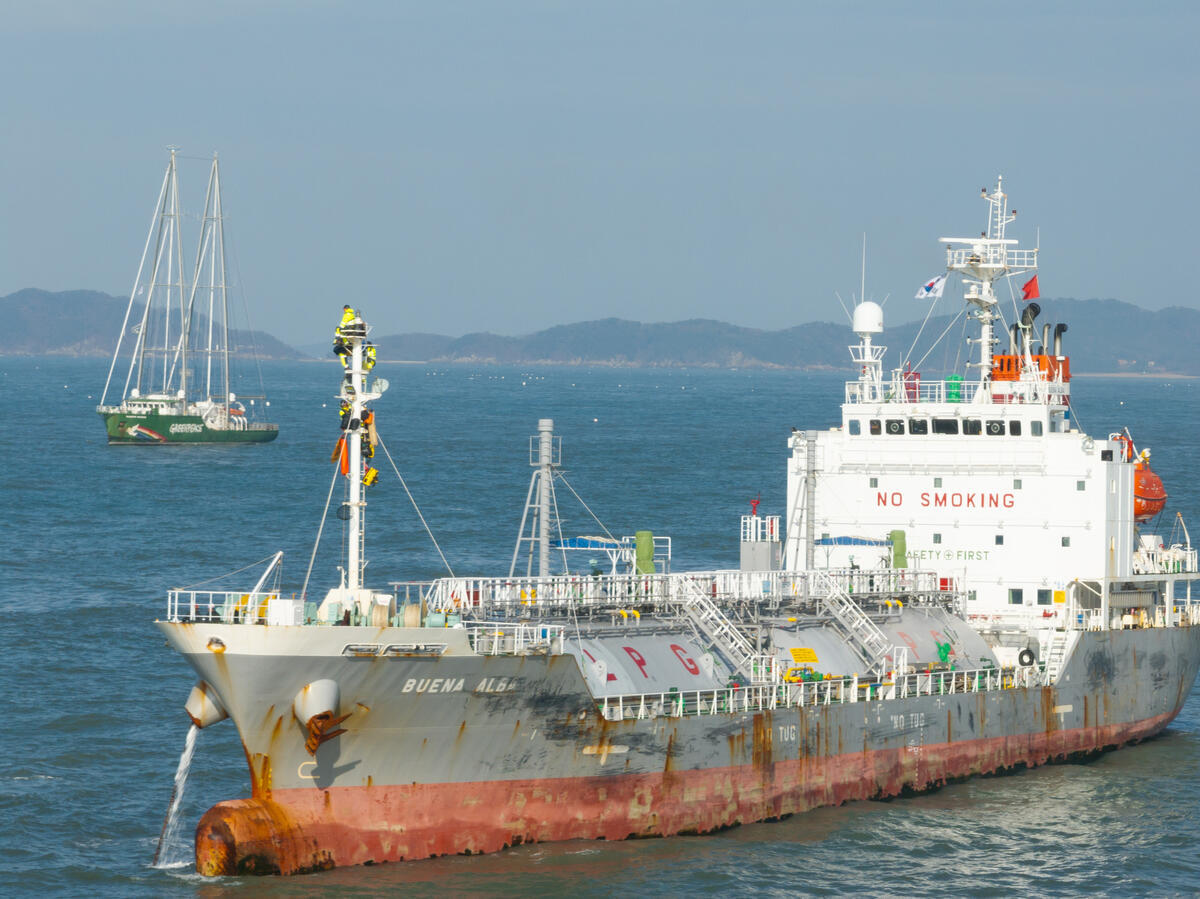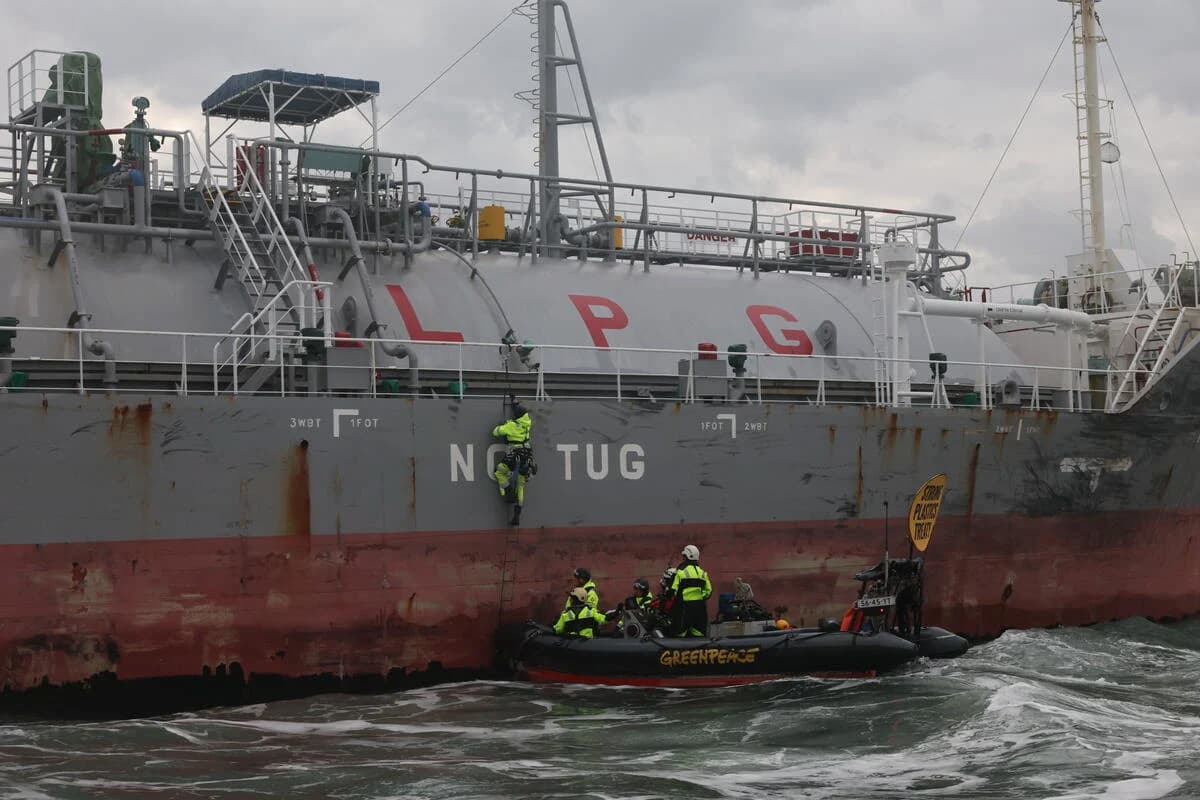This week, I am in Nairobi as an observer delegate to the third round of negotiations for a Global Plastic Treaty.
We’re here to demand an ambitious Global Plastics Treaty that will phase out single-use and short-lived plastics.
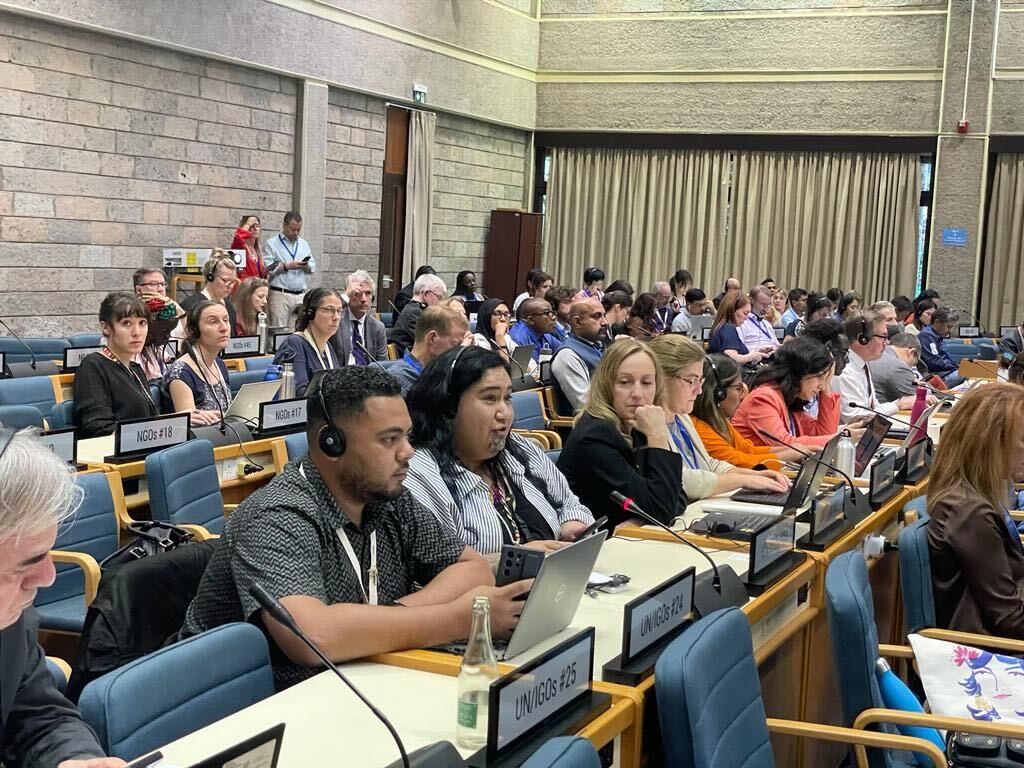
For our climate and a healthy and liveable planet, the Plastics Treaty must reduce all plastic production by at least 75% by 2040 to ensure we stay below 1.5° C. It must be rooted in a human rights approach, reduce inequality and centre justice for all communities.
I am part of the Indigenous Peoples’ Caucus too, and the Caucus also demands that Indigenous Peoples and their knowledge, lived experiences, and worldviews are necessary for the creation and implementation of an effective and just treaty.
The Indigenous Peoples’ Caucus (IPC) have concerns around some terms that are currently being used in the plastics treaty discussions. We feel they diminish who we are and what we can bring to the negotiating table by separating us from our intellectual property and hijacking our knowledge to use without us.
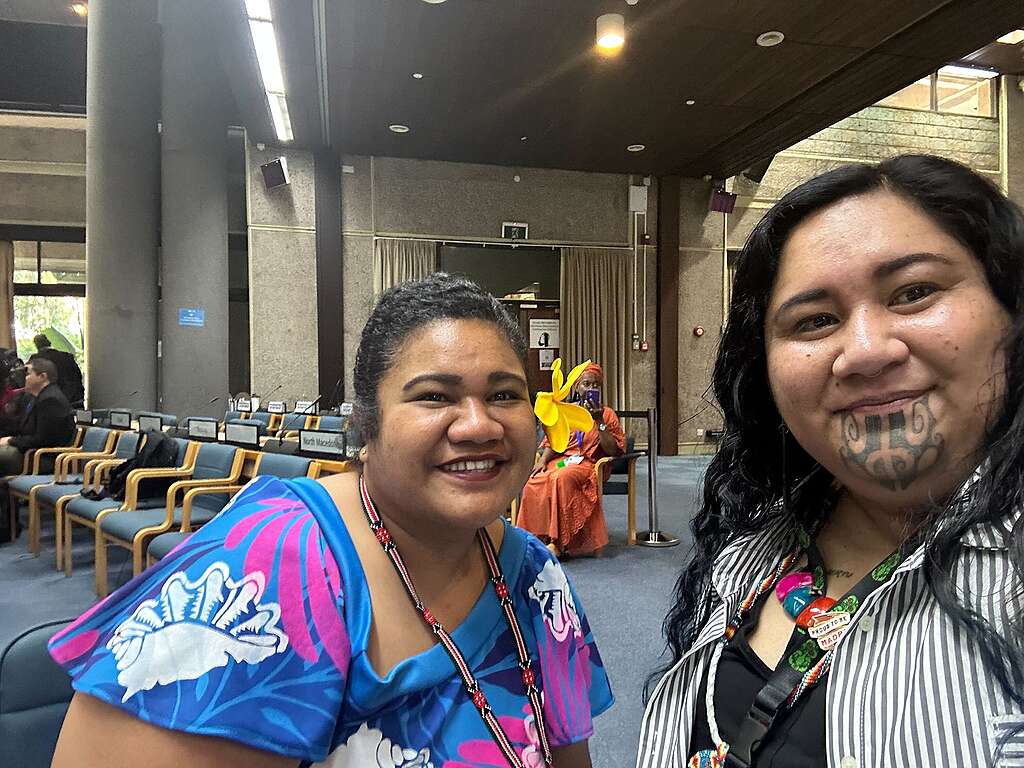
On the second day of INC3, I made a written submission to the Secretariat to clarify the IPC position on these terms, which read as follows:
I descend from Indigenous navigators who skillfully harnessed our ancestral wisdom to bravely traverse the vast Pacific Ocean, establishing vibrant communities across its many islands. I carry the legacy of my forebears and shoulder the responsibility for future generations, and today I also represent the collective voice of the Indigenous Peoples Caucus.
I wish to elucidate on certain terms used in this forum pertaining to Indigenous concepts and ways of living rooted deeply in Indigenous values and knowledge systems, which have been long-standing, predating this forum or any contemporary interpretation reflecting hijacking and appropriation.
Circular economy is not a modern innovation; it is Indigenous intellectual property embedded in the lifestyles of First Peoples globally for millennia. Our response to human impacts is based on holistic restorative and regenerative principles, aiming to protect our environments and the health of future generations. It is imperative that the definition and practice of Circular Economy be led and safeguarded by the Indigenous Peoples Caucus, recognising us as the original practitioners and custodians of this wisdom.
When this committee refers to a shift to a circular economy it must reflect this wisdom with the understanding that plastics will never be circular, sustainable, regenerative nor restorative.
The Indigenous Peoples’ Caucus rejects the term nature-based solutions terminology as it signifies a detachment of Indigenous Knowledge from Indigenous People and our identity. This separation is continued colonisation of Indigenous cultures, where systems of power and oppression cherry-pick elements of our identity they deem valuable or palatable, disregarding our consent and the crucial role we have as rights holders and guardians of that knowledge.
From historical experience, we can tell you that nature-based solutions means exploitation and capitalisation of Indigenous Knowledge to the exclusion of Indigenous values and worldviews. This always results in adverse impacts to climate, the natural environment and Indigenous communities, be it steel, gum or gold in Aotearoa New Zealand, or coal, diamonds, nickel, gas, oil or water etc in the ancestral lands of my brothers and sisters who stand beside me today.
We strongly articulate our deep-seated connection between Indigenous Peoples and their traditional knowledge, and our role as primary guardians and practitioners. We reject the external appropriation and misinterpretation of Indigenous Knowledge insisting on respect and recognition of Indigenous sovereignty over intellectual and cultural heritage.
The Indigenous Peoples’ Caucus insists that from herein nature-based solutions is correctly referred to by the INC as Indigenous Knowledge and that Indigenous Peoples are able to promote and protect it as the expert owners of that knowledge.
Our final ask is for more space to be created for Indigenous knowledge to be incorporated into this process and the final agreement.
Our hope is that member states and participating civil society organisations see the opportunities and richness that diverse perspectives at decision-making tables brings. We can keep diversifying the expertise in the creation and implementation of a plastics treaty with all fenceline communities, marginalised groups and affected workers.
Please add your name to the call for a strong global plastics treaty:
PETITION: Global Plastics Treaty
